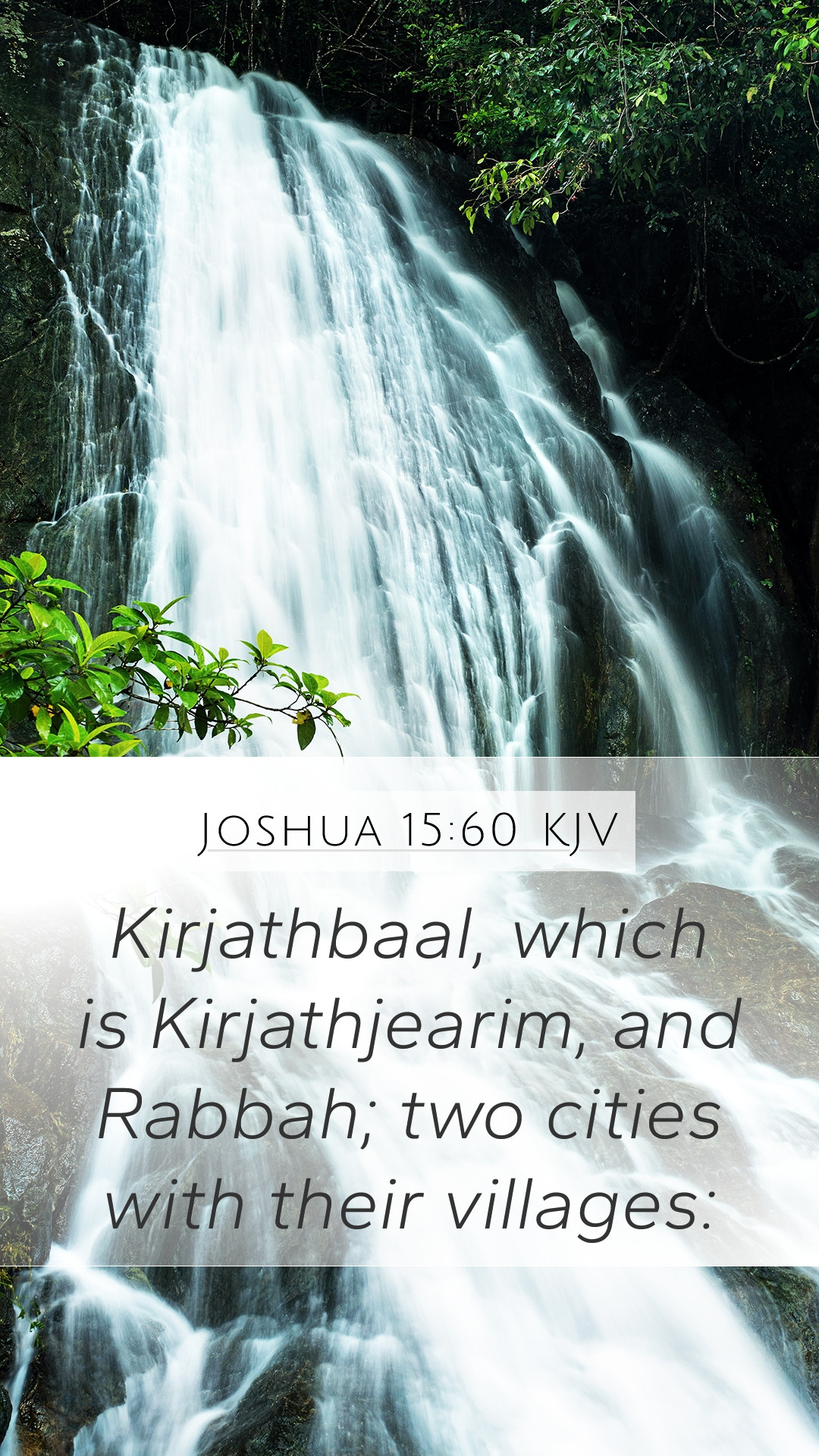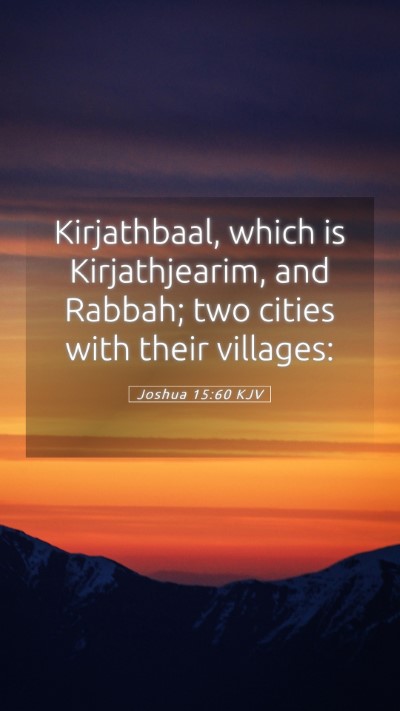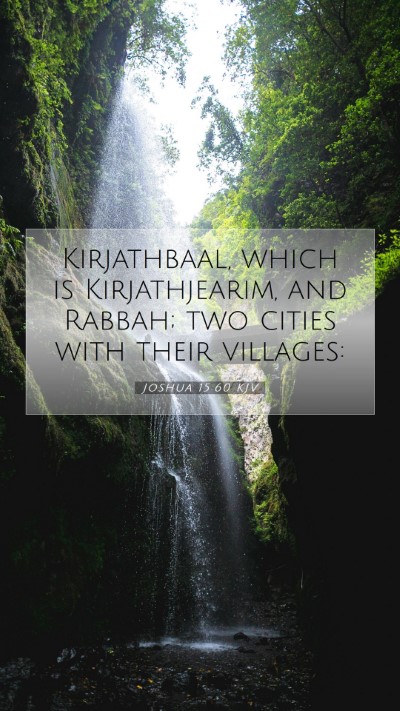Old Testament
Genesis Exodus Leviticus Numbers Deuteronomy Joshua Judges Ruth 1 Samuel 2 Samuel 1 Kings 2 Kings 1 Chronicles 2 Chronicles Ezra Nehemiah Esther Job Psalms Proverbs Ecclesiastes Song of Solomon Isaiah Jeremiah Lamentations Ezekiel Daniel Hosea Joel Amos Obadiah Jonah Micah Nahum Habakkuk Zephaniah Haggai Zechariah MalachiVerse
Joshua 15:1 Joshua 15:2 Joshua 15:3 Joshua 15:4 Joshua 15:5 Joshua 15:6 Joshua 15:7 Joshua 15:8 Joshua 15:9 Joshua 15:10 Joshua 15:11 Joshua 15:12 Joshua 15:13 Joshua 15:14 Joshua 15:15 Joshua 15:16 Joshua 15:17 Joshua 15:18 Joshua 15:19 Joshua 15:20 Joshua 15:21 Joshua 15:22 Joshua 15:23 Joshua 15:24 Joshua 15:25 Joshua 15:26 Joshua 15:27 Joshua 15:28 Joshua 15:29 Joshua 15:30 Joshua 15:31 Joshua 15:32 Joshua 15:33 Joshua 15:34 Joshua 15:35 Joshua 15:36 Joshua 15:37 Joshua 15:38 Joshua 15:39 Joshua 15:40 Joshua 15:41 Joshua 15:42 Joshua 15:43 Joshua 15:44 Joshua 15:45 Joshua 15:46 Joshua 15:47 Joshua 15:48 Joshua 15:49 Joshua 15:50 Joshua 15:51 Joshua 15:52 Joshua 15:53 Joshua 15:54 Joshua 15:55 Joshua 15:56 Joshua 15:57 Joshua 15:58 Joshua 15:59 Joshua 15:60 Joshua 15:61 Joshua 15:62 Joshua 15:63

